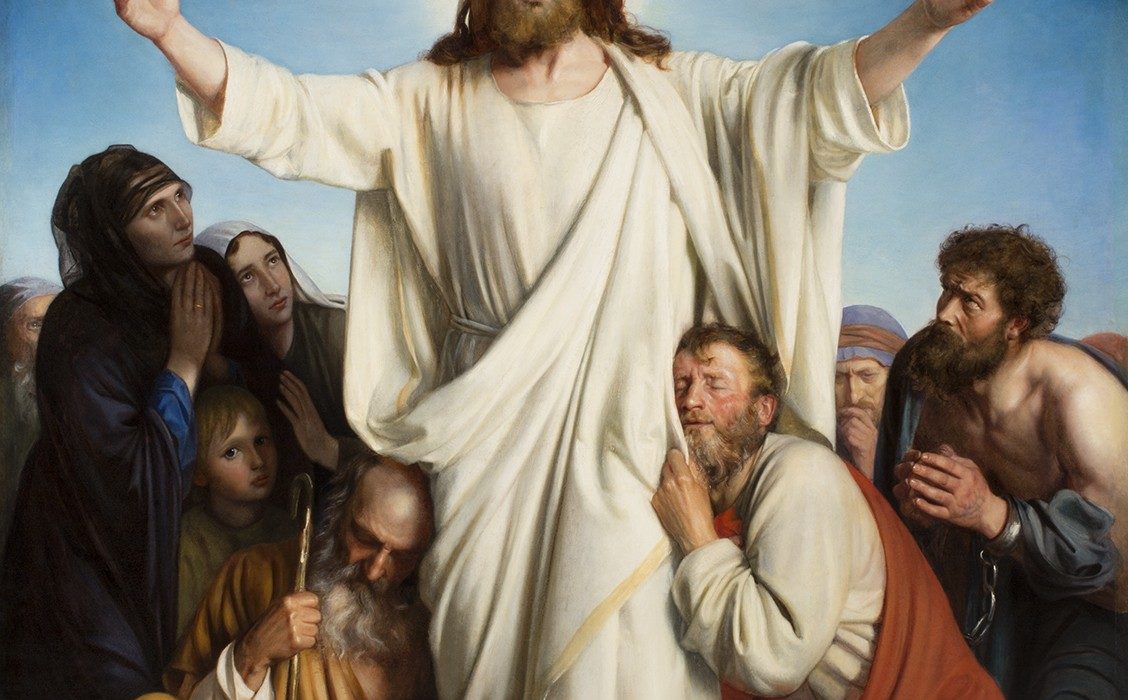What We Need… Jesu, Joy of Man’s Desiring
After the Bible, some of the earliest Christian writings the Church possesses are the works of a certain Justin Martyr. I have always found this figure fascinating, for, being a gentile originally, he was a most unlikely convert to the Gospel; and yet at the same time, no one was more likely to embrace Jesus. He was a pagan and a Greek, and hailed from a family of means. He was educated by the finest teachers and instilled with a highly cosmopolitan and distinguished mind and life. However, he found all of this somehow lacking. His being longed for more, and yet he did not know what it was that he longed for.
Justin began to study in some of the famed philosophical schools of his time, hoping that therein he would find what his soul desired. First he followed the Stoics, who taught that fulfillment came from living a life of duty and good works. This, he found, may have had some truth, but it still did not quell the unrest within him. He then joined the school of Aristotle, but there he found only greed, ‘wisdom’ on sale for the right price. Being disgusted by this, he became a Platonist, who taught that man could be joined to God by rightly contemplating Him. Here Justin thought he had found what his soul desired: union with God, and yet he found it was impossible to think himself up to God when God is, by definition, infinitely far away.
His quest, his longing, his desire had brought him from pleasure, to knowledge, to wisdom, to mysticism; but all of them failed to satisfy his deepest need. It was then that he met a Christian, and learned that God, the beginning and end, the purpose and meaning of all things, had indeed become a man, a man named Jesus, and had given himself for all humanity in general, and for Justin in particular. Justin had found what his soul had always groped for blindly. He had found Jesus, man’s final satisfaction, his peace, his rest. Justin became a Christian, and as you might tell from his name, his journey ended there; he was martyred for the sake of the name of Christ.
What we learn from Justin is that what all men desire is peace, rest, satisfaction, fulfillment. The problem is that they do not know where to find it, and so they look in all the wrong places, thinking that this fulfillment may be gained through great accomplishments, or romantic love, or fleeting pleasures, or great possessions. Our society is overflowing with sadness because we are constantly reaching out at what seems to be what we need only to find we are grasping at smoke. St. Augustine once wrote: “You seek what you seek, but it is not where you seek it.” What we seek can only be found in God, as Augustine again once prayed: “You have made us for yourself, O Lord, and our hearts are restless until they rest in you.”
The story of the three magi told on Epiphany presents us with this reality. These three men were wise; they sought after truth, after knowledge, after wisdom; they constantly looked to the heavens, knowing that nothing on earth could satisfy their longing, and so perhaps something above could. There they saw a star, and that star guided them to Jesus, to Truth Himself, Knowledge Himself, Wisdom Himself. They knew that in the holy child, they had found the consummation of everything they ever sought.
Having found the one who could give them what they finally needed, they presented our infant Lord with three gifts: incense, gold, and myrrh. Incense was sacrificed during prayers in the ancient world; so they gave Jesus incense, for what we need most was God. Gold was the adornment of the kings and rulers; so they gave Jesus gold, for what we need then is a king to rule over our souls and guide our passions. Myrrh is what is used to embalm the dead; so they gave Jesus myrrh, for what we need is a savior to die for us, that we might be saved from our sins and made righteous before our King and our God.
From the beginning of Christ’s life, it is made clear by these gifts who this child is, our savior, king and God; and what he is destined to do for us, to die on the cross, to be raised as our Lord, and to bring us in himself to God. Indeed, Jesus is all we ever needed, all we ever wanted; he is the end of all our longing and the satisfaction of every human yearning. He is indeed “The Joy of Man’s Desiring.”



